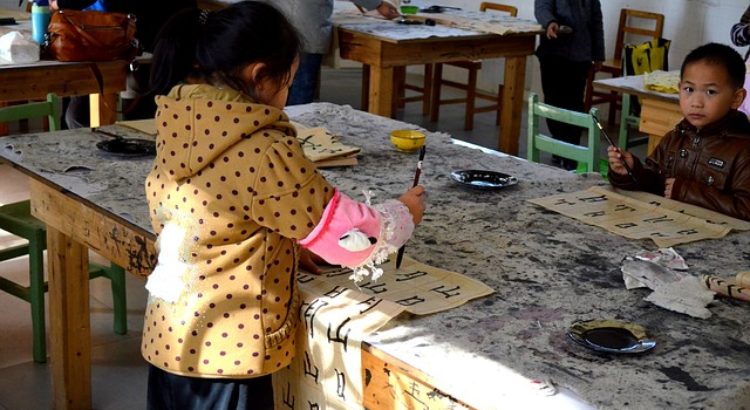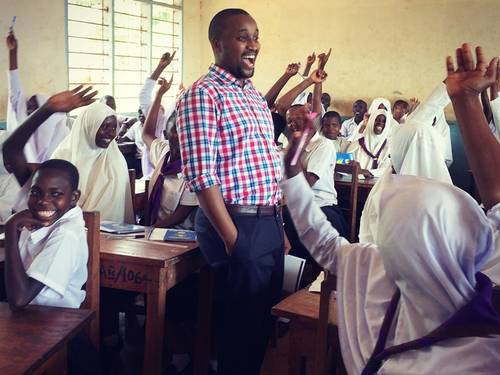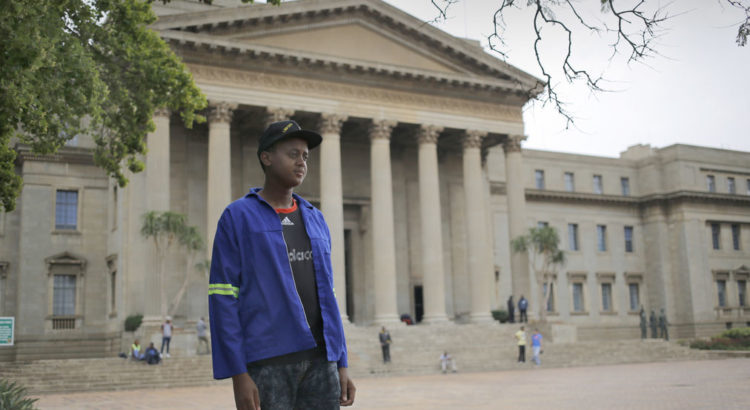Árica/Febrero 2017/Noticias/http://theconversation.com/h
In South Africa tens of thousands of students leave universities each year without completing their degrees. They are largely being pushed out of the system due to funding issues and a lack of academic support.
Funding is a national problem. But what about the lack of comprehensive academic support for students who really need it? The fault here lies squarely with universities.
Universities blame the country’s disastrous public schooling system for the fact that many students enter higher education unprepared.
Public schooling is definitely a massive problem. Research suggests that of one million children who enter Grade 1 in South Africa each year, half do not go on to complete secondary school. Only 100,000 get to university and only 53,000 graduate from university after six years in the tertiary system.
We must stop expecting first-year students – many of whom come from public schools and whose first language isn’t English – to somehow figure out how to cope with the rigorous demands of any university degree without genuine, committed support.
There are some programmes in place to ease the transition. But many students at my own institution have confided in me that these programmes are often inadequate. Most classes to improve second language speakers’ grasp of English are optional, as are workshops on academic preparedness. Some students attend them; others struggle to find time due to packed class schedules.
My institution has a writing centre to support students with essay and assignment writing. The problem is that it’s understaffed and students often have to wait weeks for an appointment.
But there’s a fascinating and troubling contradiction at play: this very same institution offers comprehensive and compulsory programmes to help students who don’t speak English as a first language – as long as they’re international students from outside South Africa. And these programmes work very well, helping students cope with university demands and go on to graduate.
These programmes must be adapted, broadened and rolled out to ensure that South African students who are struggling with English and the demands of university education don’t get left behind.
I’m speaking from experience. Fifteen years ago I barely spoke any English but managed to earn a scholarship to a university in the United States. The support I received there made a world of difference. Similar support can change South African students’ university experience – and their lives, too.
Comprehensive and dedicated support
In 2002 I received a scholarship to study at the College of St Benedict and St John’s University in Minnesota. I’m from Bosnia and Herzegovina, and English isn’t my first language. I learned a bit of English in primary school. Then the war interrupted my primary school education for two years. After the war, the education system was dysfunctional.
When I got to the US in 2002 I could hardly speak, read or write English.
I spent two months in a school for students learning English as a second language, then headed to university. This helped a bit but I needed so much more.
The first year at university was hell, academically speaking. I struggled to understand what was going on around me. I could hardly express myself or write my assignments. Often, I doubted myself and my choice to accept the scholarship. I doubted my own intelligence.
Over the years in South Africa, I have heard many accounts of similar struggles experienced by South African students whose first language isn’t English. They all speak about the inability to engage in English, to cope, follow lectures. They, too, often think that they are not good enough to be at the university.
The best thing about my first year was the English language class I attended with other international students. Our professor taught us to read, write, speak and present in English. There were three classes a week, but she supported us way beyond those set times.
Without her, I probably would have quit my studies. Instead, my marks improved dramatically and my confidence grew. In 2005 I was persuaded by my American friends to write a book about my wartime experiences. I wrote it in English. It was published in 2008.
I’ve been in South Africa since 2007, obtaining a Masters and PhD. Today I write, do research, publish, lecture, present at national and international conferences. All in English.
I didn’t accomplish any of this because I was special. The support I received at the start of my university education made all the difference.
Becoming student-ready institutions
In South Africa, the lack of comprehensive academic support for all who need it is excused by the lack of capacity and the price tag. But surely investing in programmes that bolster student success makes sense? After all, universities receive government funding partly based on their graduate numbers. And more graduates can boost the economy.
In 2013, the Council on Higher Education proposed that university studies and “qualifications should accord with the learning needs of the majority of the student intake”. This, the council argued, would entail extending undergraduate programmes by a year. The first year would become foundational, with students spending a considerable amount of time on compulsory academic preparedness and development.
This has not yet been implemented.
Byron White, vice president for university engagement at Cleveland State University, argues that universities need to stop complaining that their first-year students aren’t prepared for academic life. This approach, White says,
has allowed higher education to deflect accountability. It’s time that we fully embrace the burden of being student-ready institutions … It turns out the problem was not as much about the students as we thought. It was largely us, uninformed about what it takes to help them succeed or unwilling to allocate the resources necessary to put it into practice.
Universities must ditch the excuses and do more. Extensive academic support changes lives. It’s time we got to work.
Fuente:
http://theconversation.com/how-strong-academic-support-can-change-university-students-lives-73703
Fuente imagen :
https://lh3.googleusercontent.com/Gi-pwwpvvtLXrmAiDCxQm0n8Np7T3MKmD68O953qtf2NqAv4Wp-Y2IK7b7G70uIkFR4bTyA=s85








 Users Today : 82
Users Today : 82 Total Users : 35459988
Total Users : 35459988 Views Today : 111
Views Today : 111 Total views : 3418576
Total views : 3418576